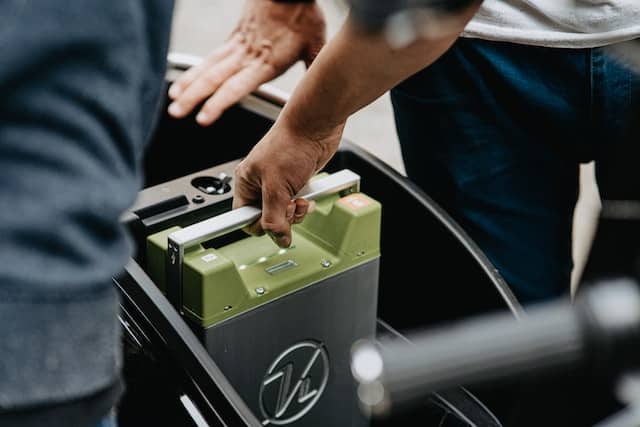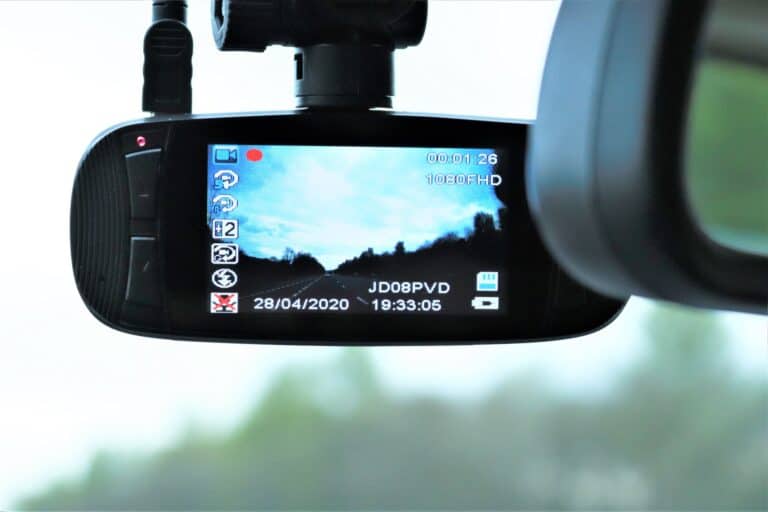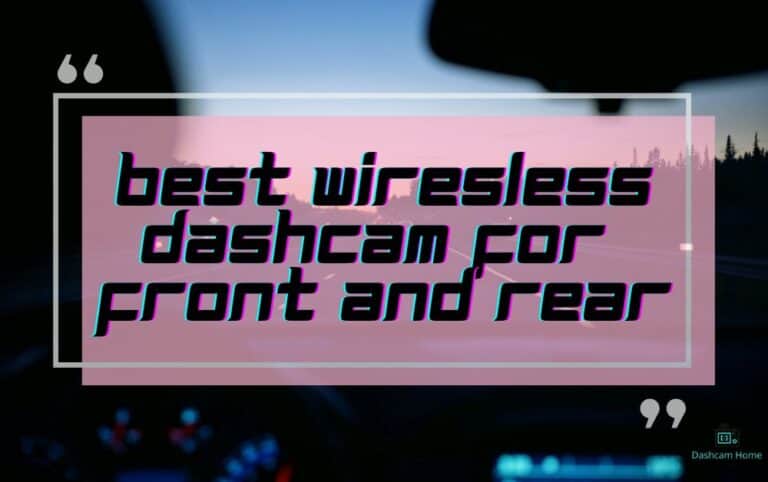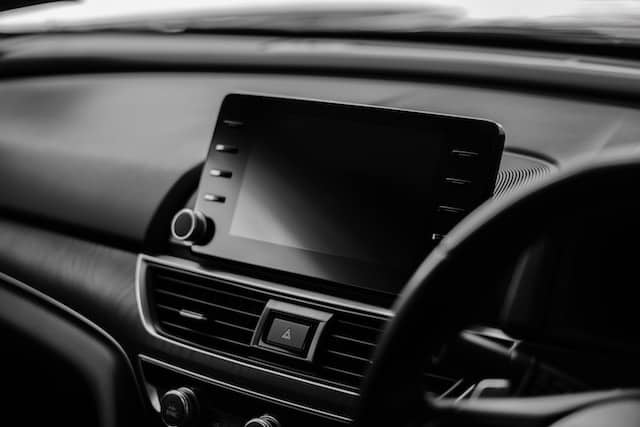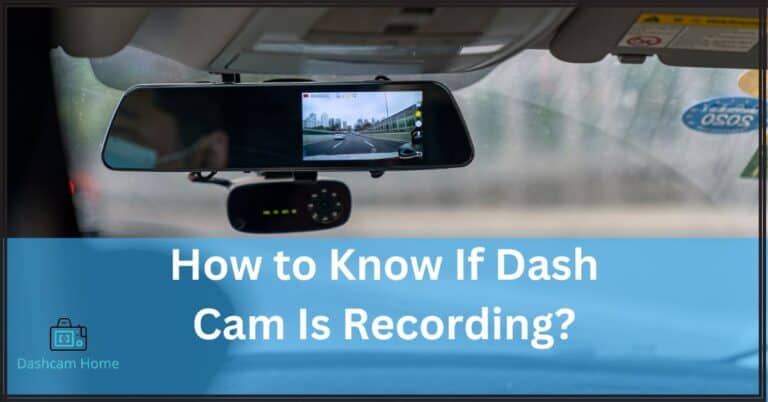Is 1080p Good For Dash Cam?
Dash cams have become increasingly popular in recent years, providing drivers with an extra layer of security and peace of mind on the road. One important aspect to consider when purchasing a dash cam is the resolution it offers. 1080p, which refers to a resolution of 1920 x 1080 pixels, is a common choice for dash cams, but is it good enough to capture clear and detailed footage?
In this article, we will delve into the world of dash cam resolutions and discuss whether 1080p is a suitable option for your needs.
When it comes to dash cam resolutions, higher is not always better. While 4K resolution may offer incredibly sharp and detailed footage, it also requires a large amount of storage space and processing power. This is where 1080p comes in.
With its Full HD quality, 1080p provides a good balance between image clarity and storage efficiency. It is often considered the sweet spot for dash cams, as it captures sufficient detail for most situations without overwhelming your memory card. However, it is important to consider various factors before deciding if 1080p is the right resolution for your dash cam.
Understanding Dash Cam Resolutions
If you’re looking for a dash cam, understanding the different resolutions is key, so let’s dive into it. Dash cam resolutions refer to the number of pixels that make up the recorded video. Higher resolutions generally result in clearer and more detailed footage.
One popular resolution for dash cams is 1080p, which stands for 1920 pixels by 1080 pixels. This means that the video recorded by a 1080p dash cam will have a total of 2,073,600 pixels, resulting in a high-definition image.
1080p is considered a good resolution for dash cams for several reasons. Firstly, it provides a good balance between video quality and file size. The footage captured by a 1080p dash cam will be clear enough to capture important details such as license plates and road signs, while still maintaining a manageable file size.
This is important as dash cams continuously record and overwrite footage, so having a reasonable file size allows for longer recording times before the storage capacity is reached. Additionally, 1080p resolution is widely supported, making it easier to view and share the recorded footage across different devices.
In conclusion, 1080p is a good resolution for dash cams as it offers clear and detailed video footage without resulting in excessively large file sizes. It strikes a balance between quality and storage capacity, making it a popular choice among dash cam users.
By understanding the different resolutions available, you can make an informed decision when selecting a dash cam that suits your needs.
Factors to Consider When Choosing a Dash Cam Resolution
When selecting a resolution for your dashboard camera, it’s important to consider various factors. One of the main factors is the level of detail you want to capture in your recordings. 1080p resolution, also known as Full HD, is a popular choice for dash cams as it provides a good balance between video quality and file size.
With 1080p resolution, you can expect clear and sharp footage that allows you to easily identify license plates, road signs, and other important details. This can be crucial in case of an accident or any other incidents on the road.
Another factor to consider is the storage capacity of your dash cam. Higher resolution videos require more storage space, so if you choose a higher resolution such as 1440p or 4K, you will need a larger memory card to accommodate the larger file sizes.
However, it’s worth noting that higher resolution doesn’t always mean better quality, especially when it comes to dash cams. While 4K resolution may sound impressive, the small size of dash cam sensors may limit the overall image quality, resulting in less impressive footage compared to a well-optimized 1080p dash cam.
In conclusion, 1080p resolution is generally considered good for dash cams due to its balance between video quality and storage requirements. However, it’s important to consider the specific needs and limitations of your dash cam before making a decision.
Ultimately, the best resolution for your dash cam will depend on factors such as your preference for detail, storage capacity, and the overall image quality provided by the camera.
Pros and Cons of 1080p Resolution for Dash Cams
To truly understand the advantages and disadvantages of opting for 1080p resolution in your dashboard camera, delve into the realm of resolution intricacies and explore the potential trade-offs.
1080p resolution, also known as Full HD, offers a high level of detail and clarity in video footage. This resolution is considered to be good for dash cams because it provides a clear view of the road and captures important details such as license plates and street signs.
With 1080p resolution, you can easily identify any potential hazards or incidents that may occur while driving.
However, there are some drawbacks to consider when choosing 1080p resolution for your dash cam. One of the main concerns is the file size of the recorded footage. Higher resolution means larger file sizes, which can quickly fill up your storage space. This can be particularly problematic if you have limited storage capacity on your dash cam.
Additionally, higher resolution footage requires more processing power to record and view, which can drain the battery life of your dash cam more quickly. It’s important to weigh these factors against the benefits of 1080p resolution to determine if it is the right choice for your needs.
Alternative Resolutions for Dash Cams
Although opting for resolutions other than 1080p may offer different levels of detail and clarity in video footage, it is essential to carefully consider the potential trade-offs and limitations they may present for your dash camera.
One popular alternative resolution is 720p, which offers a lower level of detail compared to 1080p but still provides decent video quality. It can be a suitable option for those who prioritize longer recording times and smoother video playback, as the lower resolution requires less storage space and processing power.
However, it is important to note that 720p may not capture small details as clearly as 1080p, which could be a disadvantage in certain situations, such as capturing license plate numbers or identifying road hazards from a distance.
Another alternative resolution is 4K, which provides a higher level of detail and clarity compared to 1080p. With its increased pixel count, 4K captures sharper images and allows for better zooming capabilities during playback. This can be especially beneficial when trying to capture specific details, such as license plate numbers or facial features.
However, it is important to consider the drawbacks of 4K, such as the significantly larger file sizes it produces and the higher processing power required for both recording and playback. Additionally, 4K dash cams tend to be more expensive compared to their 1080p counterparts.
Therefore, if you decide to opt for 4K resolution, it is crucial to ensure that your dash camera has sufficient storage capacity and processing capabilities to handle the larger file sizes.
Determining the Best Resolution for Your Dash Cam Needs
Deciding the ideal resolution for your dash camera necessitates careful consideration of your specific needs and priorities. While 1080p is a popular choice, it may not be the best resolution for everyone. There are several factors to consider when determining the best resolution for your dash cam needs.
First and foremost, think about the purpose of your dash cam. If you primarily use it for recording evidence in case of accidents or incidents on the road, then 1080p may be sufficient. This resolution provides clear and detailed images that can be useful in identifying license plates or capturing important details.
However, if you want to use your dash cam to record scenic drives or capture moments during your travels, you may want to consider higher resolutions such as 1440p or even 4K. These resolutions offer enhanced clarity and sharpness, allowing you to capture stunning footage of your journeys.
Another factor to consider is storage capacity. Higher resolution videos take up more storage space on your dash cam’s memory card. If you opt for a higher resolution like 1440p or 4K, you will need a larger memory card to accommodate the larger file sizes.
Additionally, higher resolutions may also require more processing power from your dash cam, so make sure your device can handle it.
Ultimately, the best resolution for your dash cam depends on your specific needs and preferences. Consider the purpose of your dash cam, the level of detail you require, and the storage capacity you have available. By carefully evaluating these factors, you can determine the resolution that will suit your dash cam needs the best.
Frequently Asked Questions
Can a dash cam with a lower resolution still capture important details in case of an accident or incident?
Yes, a dash cam with a lower resolution can still capture important details in case of an accident or incident. While 1080p provides higher image quality, lower resolutions can still provide sufficient evidence for insurance claims or legal purposes.
Are there any specific situations where a higher resolution dash cam would be more beneficial than a 1080p resolution?
In certain scenarios, a higher resolution dash cam can be more advantageous than a 1080p resolution. For example, when capturing license plate details or distant objects, a higher resolution can provide clearer and more usable footage.
How does the size of the dash cam’s storage capacity affect the choice of resolution?
The size of the dash cam’s storage capacity affects the choice of resolution by determining how much footage can be stored. Higher resolution videos require more storage space, so a larger storage capacity is needed for higher resolution dash cams.
Can a 1080p dash cam capture license plate numbers accurately from a distance?
No, a 1080p dash cam may not accurately capture license plate numbers from a distance. Higher resolution cameras like 4K or higher are better suited for capturing clear and detailed license plate information.
What impact does the price difference between different resolution dash cams have on their overall performance and reliability?
The price difference between different resolution dash cams may affect their overall performance and reliability. Higher resolution dash cams tend to be more expensive but offer better image quality and clarity for capturing details like license plate numbers accurately.
Conclusion
In conclusion, the 1080p resolution can be a good choice for a dash cam, but it may not be the best option for everyone. While it offers clear and detailed video footage, it may struggle in low-light conditions or when capturing fast-moving objects.
Additionally, higher resolution options such as 1440p or 4K can provide even better image quality, but they come at a higher price. Ultimately, the best resolution for your dash cam will depend on your specific needs and budget. It’s important to consider factors such as lighting conditions, desired image quality, and the level of detail you require before making your decision.
Regardless of the resolution you choose, having a dash cam can provide valuable evidence in case of accidents or incidents on the road. It can also serve as a deterrent for reckless driving and provide peace of mind while driving.
So, whether you opt for 1080p or a higher resolution, investing in a dash cam can be a worthwhile decision to enhance your driving experience and ensure your safety on the road.
However, the resolution is just one of the things to consider when buying a dashcam.



